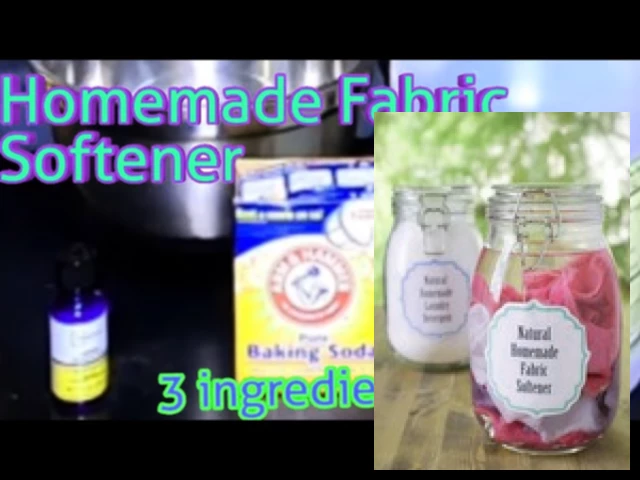Did you know that the average household uses over 300 single-use plastic laundry detergent bottles a year? This contributes significantly to plastic waste. Switching to homemade fabric softener is a simple, impactful change for a greener lifestyle. Let's explore how!
The transition to eco-friendly laundry might seem daunting, but it's easier than you think. Many readily available ingredients can replace harsh chemicals, leading to softer clothes and a cleaner conscience. What are the benefits of homemade solutions, you ask? Let's delve into the specifics.
Three Key Benefits of Natural Laundry:
- Reduces environmental impact.
- Saves money on commercial products.
- Creates a healthier home environment.
Homemade Fabric Softener Recipes
Several simple recipes provide effective alternatives to commercial fabric softeners. The core ingredients are usually easily found in your pantry or local store. The choice depends on your preference and what you have readily available. A question often arises: which recipe works best for sensitive skin? Let's compare a few popular options.
Vinegar-Based Softener
This recipe uses white vinegar, known for its softening and deodorizing properties. It's inexpensive and readily available.
| Ingredient | Quantity |
|---|---|
| White Vinegar | 1 cup |
| Water | 1 cup |
Simply mix equal parts white vinegar and water. Add this mixture to the fabric softener dispenser of your washing machine. Remember to not mix vinegar directly with detergent – it can reduce its effectiveness.
Essential Oil Variations
To enhance the fragrance, add a few drops of your favorite essential oils to any homemade fabric softener recipe. Lavender, lemon, and tea tree oil are popular choices, each offering unique benefits.
Many are curious about the best essential oils to use for a fresh scent in clothes. The answer depends on personal preference, but some popular options include lavender for relaxation, lemon for a bright citrusy scent and tea tree oil for its antibacterial properties. These natural fragrances leave clothes smelling fresh and clean without the harsh chemicals found in many commercial products.
Baking Soda Boost
Baking soda can be added to any recipe for extra cleaning power and odor neutralization. It acts as a natural deodorizer and helps to soften fabrics even more effectively. This combination makes a fantastic homemade fabric softener recipe.
But how do we make our clothes truly smell fresh, a question many have after trying several methods. The key is a combination of good cleaning, rinsing, and utilizing the proper amount of essential oils. It's similar to baking a cake; the right proportions are key!
“Using natural methods for laundry has transformed my routine, and I’m thrilled with the results!”
Frequently Asked Questions
Q: Does vinegar damage my washing machine?
A: No, diluted white vinegar is generally safe for washing machines.
Q: Can I use this on all types of fabric?
A: Yes, but always test a small, inconspicuous area first.
Q: How often should I clean my washing machine?
A: Consider running a cleaning cycle at least monthly.
Q: What if I don't have white vinegar?
A: Apple cider vinegar can be used as an alternative.
Q: Will these natural methods remove all stains?
A: Pre-treating stubborn stains is still recommended, regardless of laundry method.

